We’re Not Venture Capitalists, We’re Value Investors
Founded in 2017, Waterous Energy Fund (WEF) is a Calgary-based private equity firm pursuing investments in the Canadian oil and gas sector. WEF has raised over $3 billion in capital commitments across five distinct fundraises, positioning WEF as Canada’s largest oil and gas private equity manager.
Unlike the traditional growth-equity approach to oil and gas investing, WEF pursues a value-based investment strategy, targeting established businesses with high-quality assets. Rather than managing a large portfolio of smaller companies, we believe a concentrated portfolio of scaled businesses is the most effective way to compound long-term intrinsic value per share while maintaining a margin of safety.

WEF is pursuing a value-based investment strategy in the Canadian oil and gas sector that focuses on compounding long-term intrinsic value per share while maintain a margin of safety
Waterous Energy Fund has a differentiated investment strategy. We believe the traditional growth equity approach to investing in the sector (i.e., backing start-up teams to build junior companies by de-risking emerging plays) is severely challenged.
Instead, we pursue a value-based investment strategy that involves acquiring established, high-quality, and geographically concentrated sub-scale assets and combining them to form large, durable businesses. Rather than having a large portfolio of smaller companies, we believe a concentrated portfolio of scaled businesses with high-quality assets reduces the risk of investing in the sector.
Our Value-Based Investment Strategy is Guided by 3 Principles:
-
Compound Long-Term Intrinsic Value Per Share – Short-term market narratives inevitably change (and following the herd is rarely profitable); increasing net asset value per share and maximizing operating return on equity is our true north
-
Maintain a Margin of Safety – High-quality assets (low-breakeven, long reserve life) with long-established production histories are the best mitigants to operational and commodity price risk
-
Consolidate Core Areas – Establish a beachhead and then “buy up the block,” taking out costs and improving our cost of capital
Team
Adam Waterous MANAGING PARTNER & CHIEF EXECUTIVE OFFICER
Connor Waterous Managing Director
Henry Hager Managing Director
David Roosth Managing Director
Riley Waterous Principal
Liam Waterous Associate
Andrew Kim CHIEF FINANCIAL OFFICER
Sharon Cooke Executive Assistant
Adam Waterous
Prior to founding Waterous Energy Fund in January, 2017, Adam served as Global Head of Investment Banking and Head of Energy and Power, North America at Scotiabank, where he was responsible for all of Scotiabank's global Equity and Advisory activities and Scotia Waterous.
Under Adam’s leadership from 2005 to 2016, Scotia Waterous was among the most active advisors in the oil and gas acquisition and divestiture market with transactions roughly evenly split between Canada, the United States and other countries.
Adam co-founded Waterous & Co., a predecessor firm to Scotia Waterous, in September 1991 where he was a member of the firm's Executive Committee and the head of the firm. Scotia Capital acquired Waterous & Co. in 2005.
Before co-founding Waterous & Co., Adam worked in the Mergers and Acquisitions department with First Boston Corporation in New York and in management consulting with McKinsey & Company in Toronto.
Adam has been active in many industry, community, health, arts, and education organizations. From 2013 to 2019, Adam served on the Harvard College Fund Executive Committee. In 2013, Adam was awarded the Queen Elizabeth II Diamond Jubilee Medal for his contributions to the community and, along with his wife Jan, the Queen Elizabeth II Platinum Jubilee Medal in 2022 for their work in advancing sustainable transportation solutions in their hometown of Banff. In 2017, Adam received the Lifetime Achievement Award from the Oil and Gas Council. Adam received the 2019 Lefaivre Award, presented to an individual each year by the United Way of Calgary for exceptional volunteer service and community involvement.
From 2018-2020 Adam was Chair of Calgary Economic Development’s Economic Strategy CEO Roundtable. From 2020-2021 Adam was a founding board member of Invest Alberta Corporation, the Government of Alberta agency that promotes the province and provides services to attract businesses in key growth sectors and high impact investment opportunities.
Adam holds an Honours Business Administration degree from the University of Western Ontario and a MBA from Harvard Business School. Being in the top five percent of his class at Harvard, he was designated a Baker Scholar.

Connor Waterous
Prior to joining Waterous Energy Fund, Connor was an associate on the energy team for Kohlberg Kravis Roberts, where he was involved in a variety of corporate and asset-level oil and gas transactions from 2014 to 2017.
Prior to joining KKR, Connor was a member of the energy private equity team at the Blackstone Group. Prior to that, Connor began his career at Barclays Capital, where he was a member of the firm’s natural resources investment banking group.
Connor has been a member of a variety of community organizations, including the Catholic Big Brothers and Big Sisters.
Connor holds a B.A. with a concentration in Economics from Harvard College where he graduated Magna Cum Laude, and was elected Phi Beta Kappa. Being in the top five percent of his class, he was designated a John Harvard Scholar.
Connor also serves as Chief Financial Officer and member of the board of Strathcona Resources Ltd., a Waterous Energy Fund portfolio company.
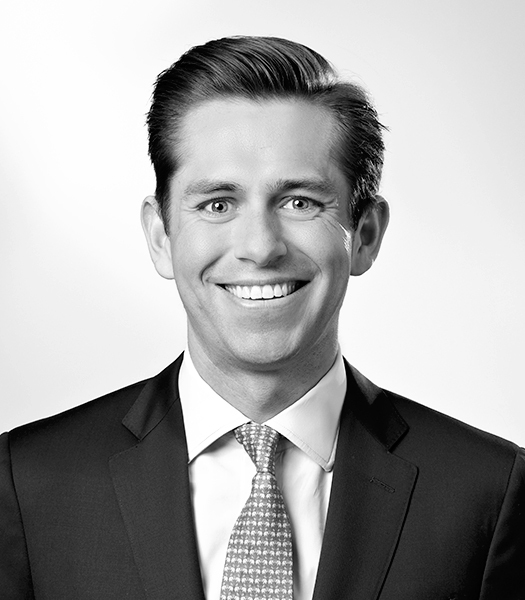
Henry Hager
Before joining Waterous Energy Fund, Henry was a Director with Kohlberg Kravis Roberts, where he spent six years, with a particular focus on energy and infrastructure.
Prior to joining KKR, he was with Constellation Energy in its corporate strategy and development group, where he was involved in a number of merger, acquisition, and other corporate advisory transactions.
He also served in a number of capacities in President George W. Bush’s administration, including as a West Wing associate to Karl Rove, Senior Advisor to the President, and as the economic and energy policy advisor to the 35th Secretary of Commerce Carlos Gutierrez. He also served as a deputy operations manager on President Bush’s 2004 re-election campaign.
Henry holds an M.B.A. from the Darden School of Business at the University of Virginia and a B.S. from Wake Forest University.
He is a board member of the George W. Bush Presidential Center and the Building Conservation Trust.
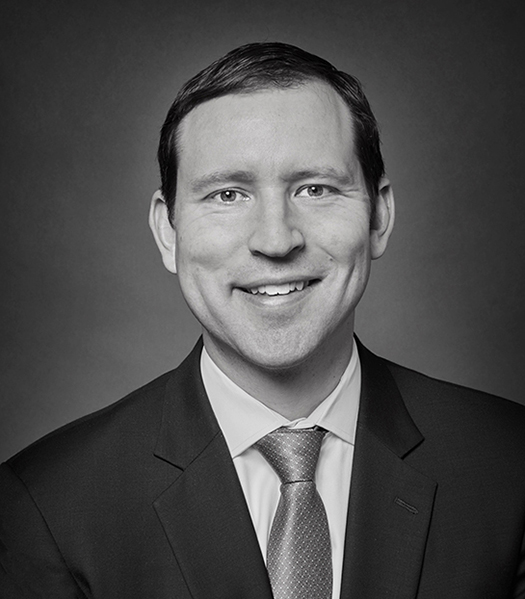
David Roosth
Prior to joining Waterous Energy Fund, David was a Principal on the energy team for Kohlberg Kravis Roberts, where he was involved in a variety of corporate and asset-level energy and natural resources transactions over the course of six years (2012 – 2018). During his time at KKR, David evaluated and executed investments across a number of different pools of capital including private equity, credit and energy real assets. David has experience in oil and gas real assets, oilfield services, midstream, downstream and mining.
Before joining KKR, David was with TPH Partners, where he was involved in middle-market equity investments in the energy industry. Prior to TPH Partners, David was with Tudor, Pickering, Holt & Co., where he focused primarily on strategic advisory and M&A transactions for companies in the energy industry.
David has been actively involved in a number of non-profit organizations and currently serves as a board member of the Houston Urban Debate League.
David holds a B.A. in Economics from Yale University, where he graduated magna cum laude and was elected to Phi Beta Kappa.
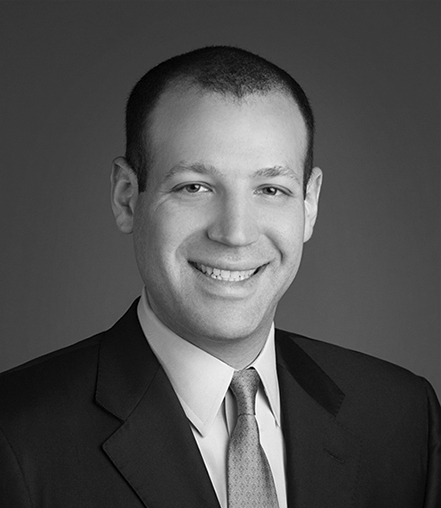
Riley Waterous
Prior to joining Waterous Energy Fund, Riley was an analyst in the energy investment banking group at J.P. Morgan, where he was involved in a variety of oil and gas mergers, acquisitions, and financings from 2017 to 2020.
Before joining J.P. Morgan, Riley was a member of the energy private equity team at ARC Financial. Prior to that, Riley worked at Pembina Pipeline, where he worked as an analyst in the Capital Markets and Investor Relations group.
Riley holds a B.A. with a concentration in Economics from Harvard College where he graduated Cum Laude, with High Honors in Economics. Riley is also a CFA Charterholder.
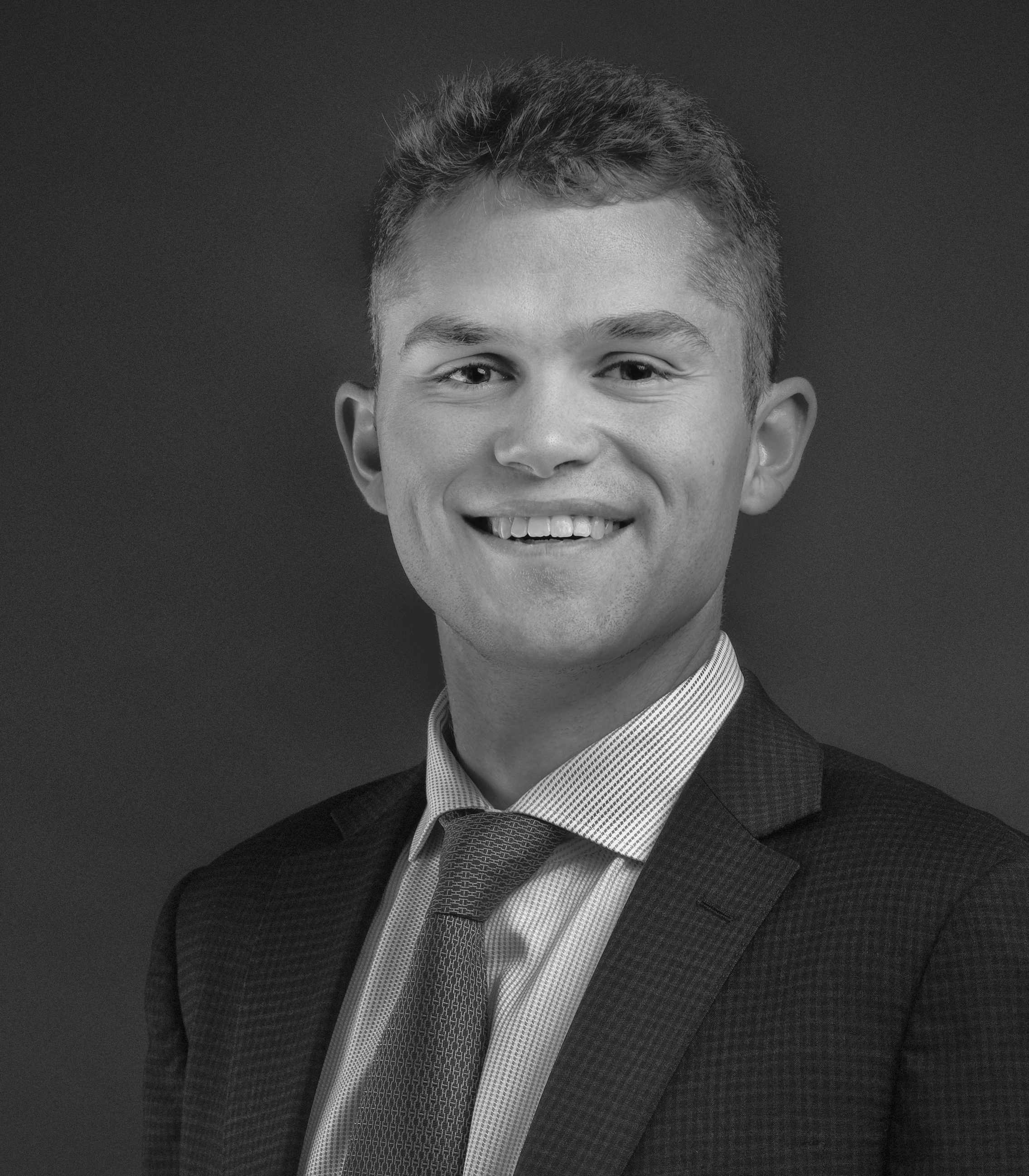
Liam Waterous
Prior to joining Waterous Energy Fund, Liam was an associate in the energy investment banking group at Scotiabank, where he was involved in a variety of oil and gas mergers, acquisitions, and financings from 2020 to 2023.
Before joining Scotiabank, Liam was a member of the investment management team at Hamblin Watsa Investment Counsel, a division of Fairfax Financial.
Liam holds a B.A. with a concentration in Economics from Harvard College where he graduated Cum Laude, with Highest Honors in Economics.
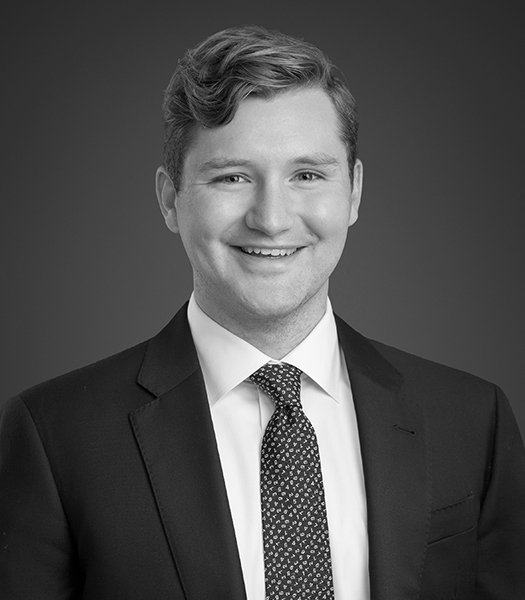
Andrew Kim
Andrew Kim is Chartered Professional Accountant, with extensive experience working with a variety of private and publicly traded companies across North America.
Andrew has held various leadership positions of several Toronto Stock Exchange Issuers including President of Crescentwood Capital Corp., President of Pyxis Capital Inc., President of HAL Concepts Ltd., President of Graystone Corporation, President and Director of Stonington Capital Corporation, President and Director of CBOC Continental Corporation, and Vice-President, Finance of Unicorp Energy Corporation.
Mr. Kim was appointed to the Strath Resources Ltd. board of directors in January 2017 and was appointed as Audit Committee Chairman in May 2017.
Andrew holds an Honours Bachelor of Mathematics degree from the University of Waterloo.
Sharon Cooke
Born and educated in England, Sharon spent the first 18 years of her career working in banking, culminating in the position of Control Manager, where she was responsible for risk and fraud management controls within a retail banking environment.
After moving to Calgary in 2006, Sharon took the position of Executive Assistant to Adam Waterous at Scotiabank and held that role until the founding of Waterous Energy Fund, where she joined Adam in March 2017.
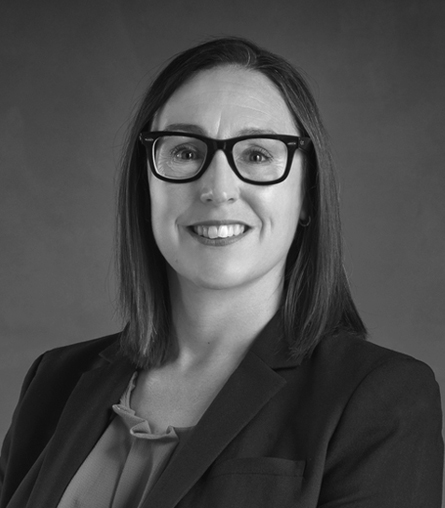
Strathcona Resources
Strathcona is one of North America’s fastest growing pure play heavy oil producers with operations focused on thermal oil and enhanced oil recovery. Strathcona is built on an innovative approach to growth achieved through the consolidation and development of long-life assets. Strathcona’s common shares (symbol SCR) are listed on the Toronto Stock Exchange (TSX). Between 2017 and 2023, WEF invested approximately C$1.9 billion of equity through a series of 10 major acquisitions to build Strathcona.
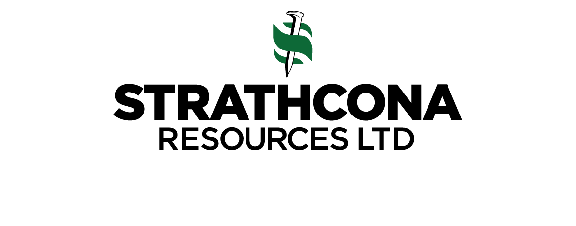
Greenfire Resources
Greenfire is a junior oil sands producer actively developing its long-life and low-decline thermal oil assets in the Athabasca region of Alberta, Canada. The Company plans to leverage its large resource base and significant infrastructure in place to drive meaningful, capital-efficient production growth. Greenfire common shares are listed on the New York Stock Exchange and Toronto Stock Exchange under the symbol “GFR”.

News Room
Pipestone shareholders approve takeover by Waterous’s Strathcona
Adam Waterous, CEO at Waterous Energy Fund, joins BNN Bloomberg to discuss pipestone shareholders approving the takeover by Waterous’s Strathcona.
ADAM WATEROUS: There’s opportunity in the death of the oil industry’s business model
The Globe & Mail
'We never had it so good': Canadian investor Adam Waterous is an optimist about energy
Financial Post
Press Releases
Select Quotes
Select Quotes from Adam Waterous in the News Media in 2022
Financial Post – 4/26/2022
They point to the Oil Sands Pathways initiative, an alliance of six companies that have said they will co-operate to build a CO2 pipeline connecting various oilsands facilities to an underground storage hub near Cold Lake. Adam Waterous, founder of the eponymous private equity firm, Waterous Energy Fund, says the project could dramatically lower the carbon intensity of Canadian oil by the end of the decade.
“It’s our view that by the end of the decade there is a pretty good chance that there is going to be great political pressure to get Canadian barrels into the United States, not just for energy security but to help to decarbonize the fuel system in the United States,” Waterous said on a recent episode of the Veriten podcast, C.O.B. Tuesday.
“Now that’s a flip of the script,” Waterous said. “That is the opposite of what’s going on here and that’s how we see energy security and the Canadian industry lowering its emissions intersecting.”
Institutional Investor – 4/6/2022
“When you think about investors coming back into the market, you have to think about what drove them away in the first place,” said Adam Waterous, founder of the eponymous private equity firm, Waterous Energy Fund. “In our view, first and foremost, it was poor returns,” Waterous said. He added on Monday that ESG concerns played a minor role in investors’ departure from the space.
In 2019, before the Covid-19 pandemic hit, oil was trading at around $57 per barrel on average, Waterous said. The U.S. oil and gas industry returned two to three percent on capital invested. “That was a broken industry for returns,” he said. “Having said that, $100 oil solves a lot of those problems.”
During the oil rout, Waterous doubled down on its strategy, taking a value approach to identifying attractive investments. The firm tries to keep production costs at $44 per barrel, meaning that even in a lower price world, the firm would turn a profit.
WEF on Peak Permian, Oil Industry M&A, and WEF Investment Strategy
Select Quotes from Adam Waterous in the News Media in 2020
Peak Permian
Bloomberg – 1/14/2020
“We think we are at or near peak Permian. The North American oil market has been grossly overcapitalized, which is not sustainable…Over the past five years,the industry and its investors mistook a massive structural change for a simple cyclical event. It’s impossible to continue to have uneconomic production and capex.”
Financial Times – 8/17/2021
If they can be greened, supporters say a golden era awaits the oil sands, as stuttering US shale production and under-investment in supplies elsewhere increases the strategic value of deposits in western, open countries. “By the end of the decade, Canada is going to be a quarter of free-world oil,” said Adam Waterous, head of Waterous Energy Fund, a Calgary private equity firm.
Financial Post – 5/9/2020
“[We expect] total oil production in the U.S. to fall several million barrels per day this year. The coronavirus pandemic has only accelerated that trend. Essentially, it’s turned the slope of the decline from a green run into a double black diamond.”
Globe and Mail – 6/19/2020
Even before the pandemic, the U.S. oil “tech-wreck” [as Mr. Waterous says] had showed itself over the past five years as producers and investors plowed piles of capital into drilling and hydraulic fracturing in regions such as the Bakken in North Dakota and the Permian in Texas. Returns have dwindled, Mr. Waterous says. U.S. oil output is on track to decline from 12.7 million barrels a day at the start of this year, to 9 million or 10 million a day by the end of 2021, and that will mean corporate casualties, he predicts.
The Financial Times – 10/12/2020
“They were making lousy returns at $65 a barrel,” said Adam Waterous, head of Waterous Energy Fund. “You need at least north of $70 before you start achieving a cost-of-capital return in the U.S. [shale] oil business.” Production from the Permian, the prolific shale field of west Texas and New Mexico, peaked even before the crash this year, Mr. Waterous said. At current prices, only 25% of US shale was economical, he added.
Harold Hamm took issue with a claim by Adam Waterous, head of Waterous Energy Fund, that just 25% of the shale resources was now viable at $40 a barrel. “That just doesn’t hold water,” said Mr. Hamm, a renowned US oil bull. “If that was the case, oil wouldn’t be at $40 for very long – it would have to increase to have supply.”
S&P Global Platts - 12/29/2020
“More broadly, we think we're at peak investable oil; supply coming from investor-controlled companies in the world has peaked and is in decline," Waterous said.
At year-end 2019, the world consumed about 100 million b/d of oil, 27 million b/d of which came from investor-controlled oil businesses, Waterous noted.
“By 2030 we think that will decline to...20 million b/d," he said, with 3.5 million b/d of that decline coming out of the US.
The Globe and Mail - 2/23/2021
“More broadly, we think we're at peak investable oil; supply coming from investor-controlled companies in the world has peaked and is in decline," Waterous said.
At year-end 2019, the world consumed about 100 million b/d of oil, 27 million b/d of which came from investor-controlled oil businesses, Waterous noted.
“By 2030 we think that will decline to...20 million b/d," he said, with 3.5 million b/d of that decline coming out of the US.
Oil Industry M&A – Poor Asset Quality Reducing Buyers
Bloomberg – 4/1/2020
“The [shale] industry was just vaporizing capital over the last five years. The U.S. unconventional business was not working, and specifically, the returns that were being earned were atrociously poor…The technology really is incredible – it was a revolution – but what happened was it got way overdone. In the sober light of day, maybe about 15% or 20% was economic. Three-quarters-plus was completely uneconomic.”
The Wall Street Journal – 10/20/2020
“There is no market for about 80% of the roughly 500 oil and gas producers in North America...It’s not as simple as smashing together some private equity [oil and gas] companies that have no buyer,” said Mr. Waterous, who was previously the head of investment banking and energy at Bank of Nova Scotia. “The vast majority of these are not good assets.”
Reuters – 3/24/2021
“The organic growth model is dead,” said Adam Waterous, chief executive of Canadian private equity firm Waterous Energy Fund, which this month completed its takeover of Osum Oil Sands Corp for C$171 million ($137 million).
“Puff Daddy said it all: ‘It’s all about the Benjamins,’” he said, referring to the American rapper’s song about the U.S. $100 bill. “If Canadian companies want access to U.S. investors’ cash, they have to gain scale,” he added.”
Oil Industry M&A - Few Buyers Reducing Premiums
Forbes – 10/27/2020
“This M&A is entirely defensive…The industry got over capitalized. It was way too big and now it has to shrink. That’s why we’re seeing all-stock deals with very small premiums. The future looks tough — sellers are waving the white flag.”
The Globe and Mail - 2/23/2021
“The industry went through a four-decade obsession with growth, starting in 1973 with the first Arab oil embargo,” Waterous says. “That was a period when the industry was in an age of scarcity, and all things oil were driven for growth. Now that this age of scarcity has passed, we have to focus on the underlying profitability of the business.” That’s why the sector has seen a flurry of mergers recently, including Cenovus Energy’s $23.6-billion takeover of Husky Energy in October and Whitecap Resources’s all-stock purchase of TORC Oil & Gas in December. “There will be fewer companies out there,” Waterous says, “but overall, the health of the industry will be better—and that’s going to help attract investors to the sector.”
Financial Post – 15/4/2021
Private money is behind as many as 500 producers in the US, accounting for about a third of total American oil output in recent years. The bulk are now lossmaking and will never repay the cash ploughed into them, said Waterous.
“We think about 80 per cent of them are illiquid,” he said. “There is no bid. So 400 of the 500 are unsaleable.”
Failing companies are likely to be starved of capital and forced into “blow down” mode, said Waterous, producing what oil they can as quickly as possible and as long as possible, just to keep some cash trickling in.
“This business is broken,” said Waterous. “The industry is going through a multiyear process of wringing capital out of the sector, not bringing new capital in.”
WEF Investment Strategy
Globe and Mail – 6/19/2020
“We think the North American energy industry is going to create a lot of special situations. We are a deep-value special situations investor… A large portion of the North American oil business over the next several years is going to be recapitalized, restructured and repositioned. For the U.S. oil business, this is going to be, ‘Honey, I shrunk the industry.’”
The Globe and Mail – 8/14/2020
WEF’s ultimate aim to consolidate [Strath Resources and Cona Resources] was “the oil patch’s worst kept secret,” Mr. Waterous said in an interview. “There’s never been such an important need for the industry to consolidate itself, for companies to merge to gain scale. So that’s what we’re doing – getting bigger to have operational economies of scale and better access to capital.”
The Economist – 10/10/2020
Waterous Energy Fund, a private-equity firm that has bought more than half of the Canadian reserves sold in the past three years, has a simple strategy, says its boss, Adam Waterous: “Hold production flat and maximize sustainable free cashflow.”
Bloomberg - 12/10/2020
Adam Waterous, chief executive officer of Calgary-based private equity firm WEF, is among investors expecting more profitability from the oil sands than shale. He estimates U.S. crude production will fall by about 2.5 million barrels a day in the next year as oil prices are still too low to earn attractive returns…“The best days of the U.S. oil industry are definitely behind us,” he said. “We are very bullish on Canadian oil sands where others are not.”
